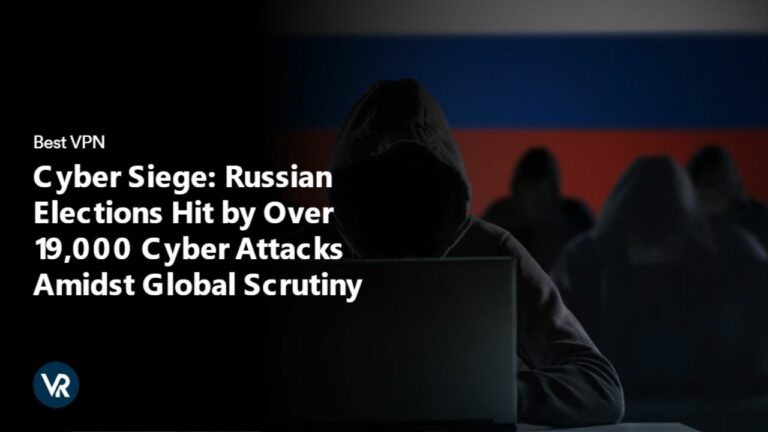
The Russian presidential elections have become the epicenter of a cyber onslaught. Igor Borisov, a prominent figure within Russia’s Central Election Commission (CEC), unveiled startling statistics to the TASS news agency, indicating a relentless wave of cyber intrusions to destabilize the electoral process.
Since the dawn of 2024, the CEC’s digital infrastructure has been bombarded by nearly 8 million potentially harmful cyber interventions. Borisov articulated:
Almost eight million episodes of potentially dangerous impact have been recorded on the CEC website since January 1, ranging from moderate to high severity, including four deliberate DDoS attacks that lasted 14 minutes.
This digital turmoil underscores the vulnerability of critical national infrastructures to sophisticated cyber threats.
The intensity of these cyber attacks escalated with the commencement of the election period, marking over 19,000 attempts to breach the CEC’s cyber defenses.
Borisov highlighted the severity of these incidents, noting that the attacks were of moderate to high severity, further complicating the CEC’s efforts to maintain a secure and transparent electoral process.
Amidst the voting phase, the election’s digital infrastructure faced nine targeted DDoS (Distributed Denial of Service) attacks.
These disruptive maneuvers, aimed at overwhelming the CEC’s online services, spanned a cumulative duration of 38 minutes, posing significant challenges to the integrity and continuity of the electoral process.
The geopolitical landscape adds a layer of complexity to the cyber-attacks, with the elections attracting global attention, especially from Western nations, amidst the ongoing conflict between Russia and Ukraine.
Igor Lyapunov, at the helm of Solar Group, a subsidiary of Rostelecom, disclosed that on the election’s opening day, an astonishing 90,000 cyber assaults were launched against Russian election portals, predominantly originating from Ukraine and North America.
This cyber confrontation occurred against a high-stakes meeting in Kiev, where officials from Ukraine, the US, and the European Union convened in early February to deliberate on cybersecurity strategies, underscoring the international dimension of the electoral cyber threats faced by Russia.
In a revelation that has sent ripples through diplomatic circles, Russia’s Foreign Intelligence Service (SVR) announced on March 11 that the Biden administration had allegedly tasked US-based NGOs with a covert operation aimed at reducing voter turnout in the Russian presidential elections.
The SVR’s statement disclosed:
According to information received by the Russian Foreign Intelligence Service, the administration of Joe Biden sets the task for US NGOs to achieve a decrease in the turnout in the upcoming March 15-17 presidential elections in the Russian Federation.
As the world watches, the digital battlefield surrounding the Russian presidential elections continues to evolve, with each cyber-attack underscoring the critical interplay between cybersecurity and modern democracy.
Amidst this high-stakes cyber warfare, the resilience of Russia’s electoral infrastructure is put to the ultimate test, highlighting the need for robust cybersecurity measures to safeguard the sanctity of the electoral process.
For those seeking to enhance their digital security in these turbulent times, exploring options like the best VPN can provide an added layer of protection against the ever-present threat of cyber intrusions.
